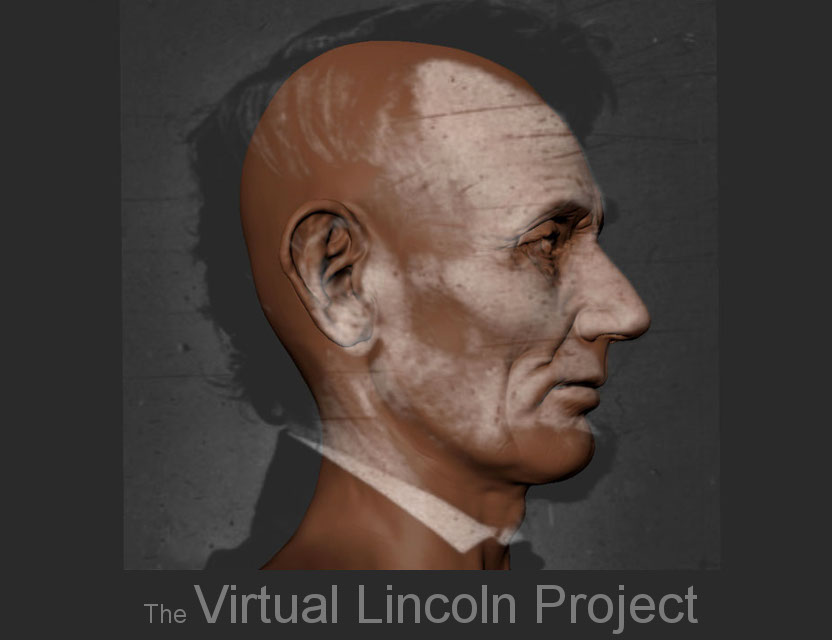Survival Guide For College
Making the Most of University Life

College Life
The "college experience" seems to represent something different to everyone you ask. Most people are attending because they don't want to cook soggy french fries at a McLovinburger restaurant for the rest of their lives, some people are here because their parents threatened to disown them if they didn't apply, and others figure they might as well sieze the opportunity while they're still young to party, and party hard. While everyone's personal experiences of university life will vary, it can be said that to get the most out of your time spent in college, you have to be willing to make choices that you think will help achieve your own goals.

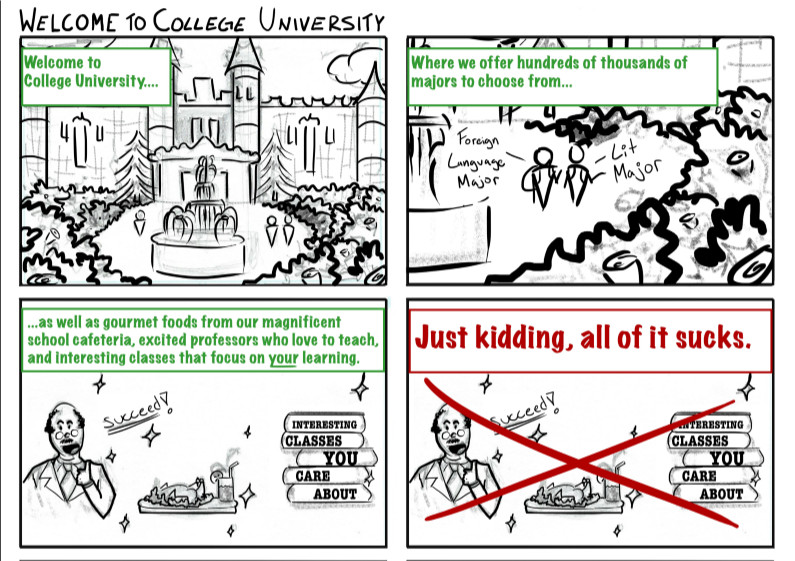
College University Comic PDF by Katelyn Schubel

Disillusionment
Whatever you may think you know about college is probably a lie. Frat parties, hazing, beer pong nights, and hilarious stories about skipping classes to pull pranks on your roommates or professors? Yeah, that stuff doesn't really happen that much. Except for the drinking part, and then it's more like indulgent self-pity kind of drinking because you have two essays, a presentation, and an exam tomorrow. So not quite the fun kind of stuff you were maybe looking forward to.
Nigahiga: Honest University Commercial
Vlog Brothers: Why is College So Expensive?
CollegeChoice: How College Rankings Work
FlippedNormals: The Creative Student’s Handbook – Schools!
Film School Secrets: What Are the Top Film Schools?

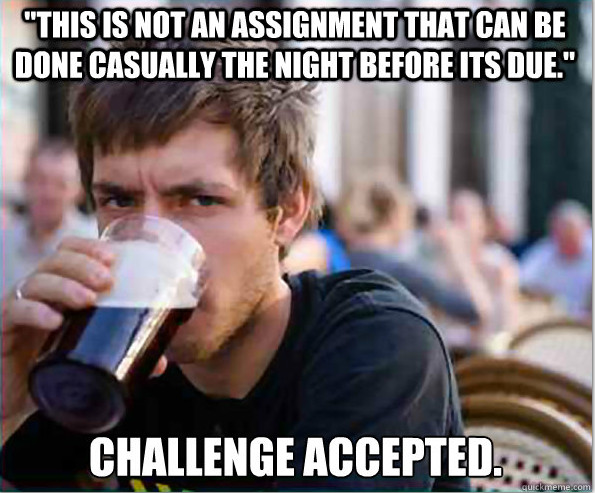
C's get Degrees
Doing the minimal amount of work and going through the motions to meet requirements until you get handed a degree isn't going to make you smarter or more likely to get the job you want. You're honestly wasting your time and money if you don't attempt to learn something or make friends and connections.


Liberal Arts
The liberal arts curriculum requirements are not custom-tailored for your individual happiness or success. Even though you pay a lot of tuition money in the naive belief that you will get to choose to take classes that interest you, the reality is that you get to choose your major and maybe one or two extracurricular classes. That's about it. The university will magnanimously assist in your becoming a well-rounded conscientious citizen by doing the rest of the decision making for you, assigning prerequisites and Humanities courses to diversify your schedule. Requisite courses are a major part of most every degree program in the country.
You have to figure out how to make yourself happy and study what you think will be an asset to your career later on. Sometimes that means going against the rules, guidelines, and expectations. For some people it might mean finding an alternative university or leaving college to get more practical job experience. College is ridiculously expensive and it isn't ideal for everybody's learning style. There's a lot of pressure on young people today to get good grades in school and then go to college and repeat the process. However, there's no shame in walking away without a diploma if the education format and campus atmosphere isn't right for you. Just don't quit on yourself. Find whatever learning method does work for you and don't give up on something if it's what you truly enjoy.

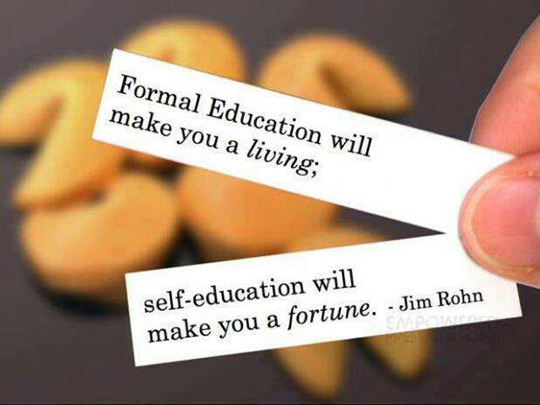
Self-Teaching and Independent Research
Despite what parents and high school teachers might have told you, a degree is not required to get a good job, at least not in most New Media related fields. It's true that many employers look for a college education on applicant resumes, and some won't even consider high school dropouts. If that employer is going to judge what you are capable of based on a sheet of paper, you probably wouldn't enjoy working there anyway.
Most employers don't discriminate by education experience; they are far more interested in seeing if you have talents, skills, an innovative problem-solving approach, and will bring valuable ideas to their company. A college degree indicates to a potential employer that you have dedication, but that isn't the same thing as experience or being able to work under pressure. Someone who is self-taught, optimistic, and has good work ethics can sometimes get hired when competing against graduates who didn't really learn anything useful in four years at a university.

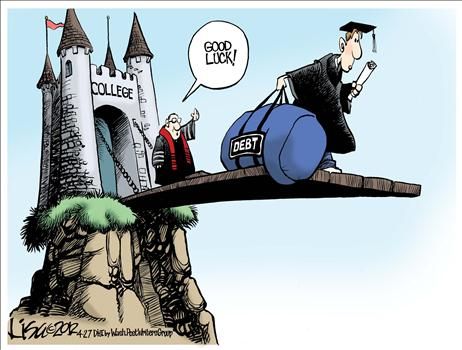
What Good is a Diploma?
The advantage of staying in college is that as long as you are enrolled you will have access to student discounts and resources that you wouldn't necessarily be able to afford or readily access outside of a university. Take advantage of the software and ask the faculty lots of questions. Meet other people with similar interests, as well as some people with different opinions. Go to guest speaker events and performances.
Finding people who will help you out and challenge you to create things you never would have considered trying before represents what the college experience is supposed to be all about. You can learn a lot online for free, but if you don't interact with other people you're less likely to learn how to how to ask questions, work productively, or collaborate on a team. Most all businesses look for these traits. A degree signals to employers that you have a better understanding of work ethics and networking compared to people with zero college experience, which really is a valuable thing to have.

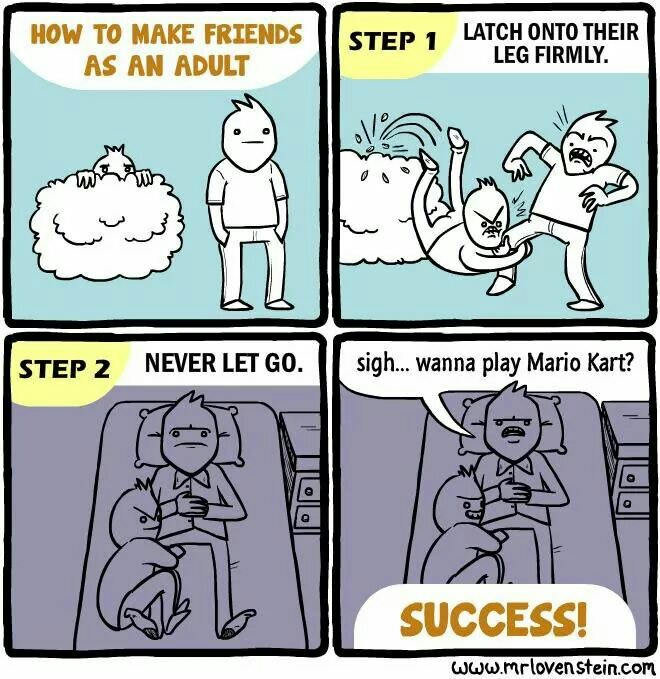
Making Friends
To make friends, start by thinking positive happy thoughts. Awkwardly introduce yourself and establish an awesome signature handshake or distribute business cards with "Be my Friend." printed on them in nice bold letters. Share stuff you like or think is cool, and discover that other people often think that stuff is cool too and will offer suggestions for other stuff you might like. Try to stay in contact outside of class by meeting to go get food or going to concerts or movies. Initiate conversations. Facebook friending people isn't quite the same as being a friend face to face, but it's a starting point.
A little friendliness goes a long way. Be nice to the professors and staff. Bring them coffee or snacks once in a while, and drop by their offices to say hi. Be engaged in class and ask questions. Thank them for helping out. There's such a thing as getting a little too appreciative, so don't send emails seventeen times every day or start stalking professors to find out where they live or anything.
I Waste So Much Time: How I make friends.

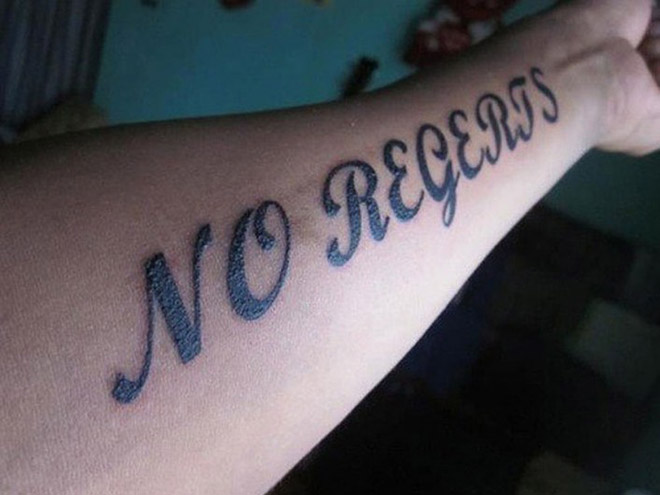
Regret Nothing
Don't be dumb, guys. If your sketchy ex-roommate ever tries to convince you to take some brain performance-enhancing magic mushrooms the day before finals, you're not going to ace those exams. You'll probably wake up 37 hours later stranded in east Tokyo with shaved eyebrows and some new unflattering tattoos that look like they were inked by a 3 year old.
Stuff happens. You're going to make mistakes and come to regret some bad choices no matter what. Try to move on and learn from mistakes. It's not worth getting upset over what's been done in the past.

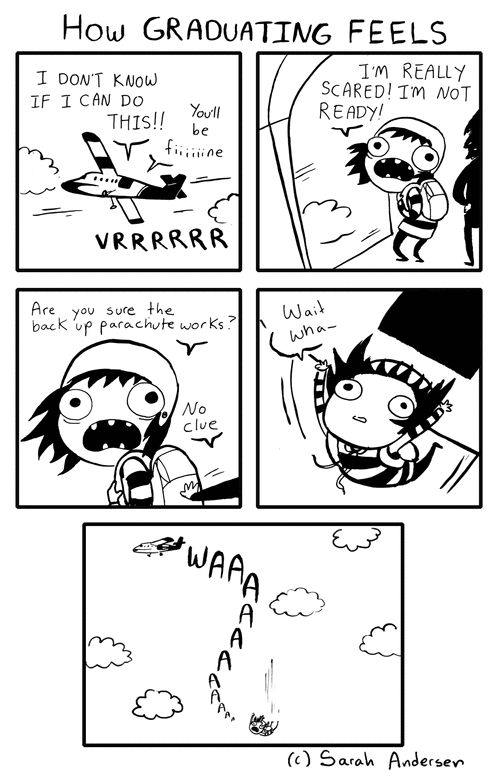
http://sarahcandersen.com/
College is Preparation for the Real WorldJust know that no matter how much college sucks, trying to find a job in the real world is worse. So try to enjoy yourself a little bit. If you hate what you are doing in college, then you probably won't like doing that for a career either.








